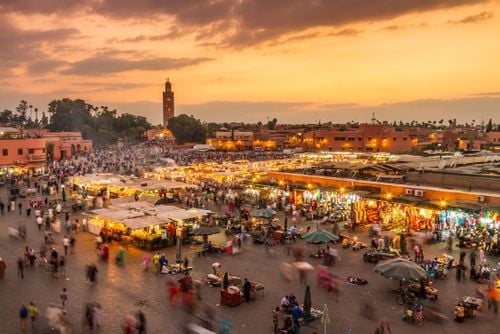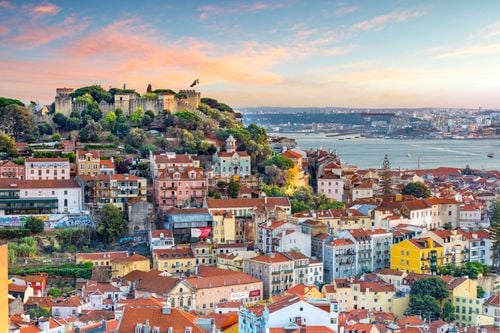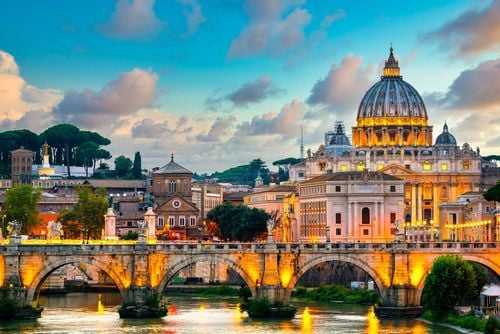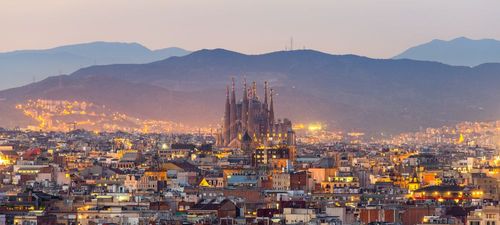Continental or island, discover Greece from every angle
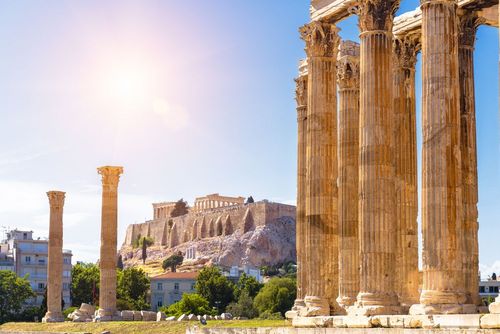
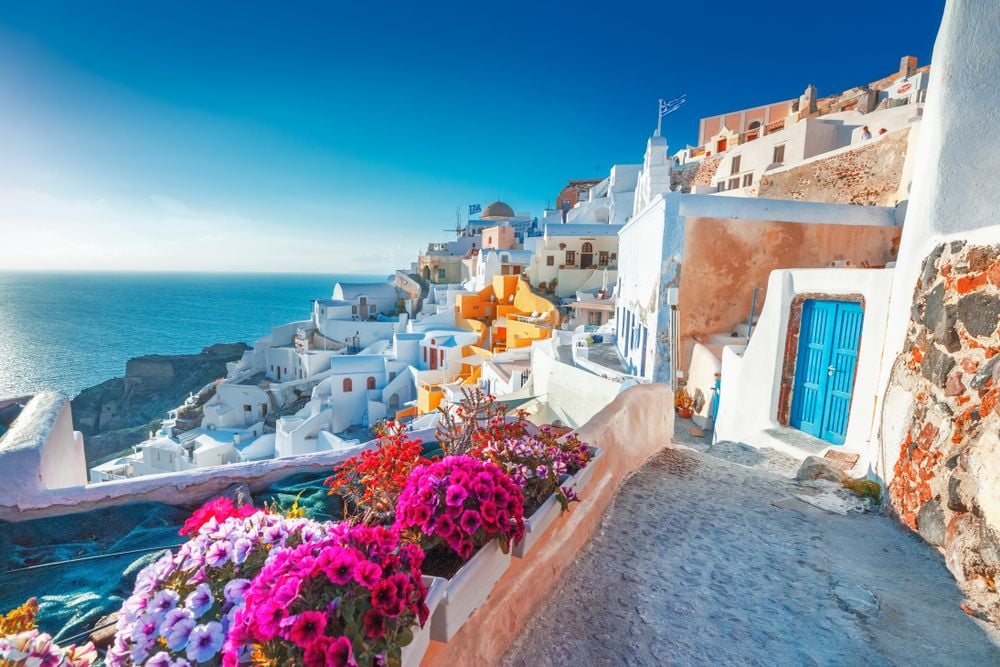
Continental or island, discover Greece from every angle
When we think of Greece (" Hellas " in Greek), we usually think of sun-drenched islands and moving ancient sites that recall the country's prestigious history. In fact, Greece is all this and much more. Its territory seems to be split into two entities: a continental part and an island part, sharing a common culture and way of life. And yet these two worlds produce very different experiences for travellers.
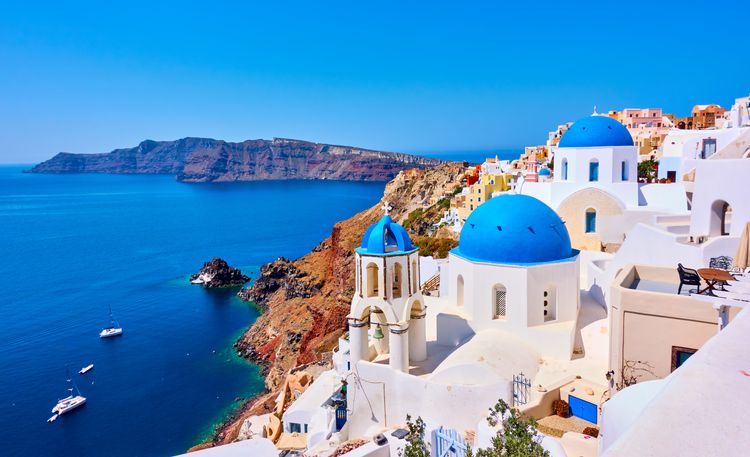
Santorini, in the Cyclades
- © Roman Sigaev / ShutterstockThat's why Greece is a destination where you rarely tire of travelling. Its diversity is grandiose, but is always based on one constant: the Greeks' innate sense of welcoming strangers, the famous Philoxenia. Greek cuisine is flavoursome and generous, balancing influences from the land and the sea, and always makes you feel welcome, adding an extra dimension of pleasure to your stay.
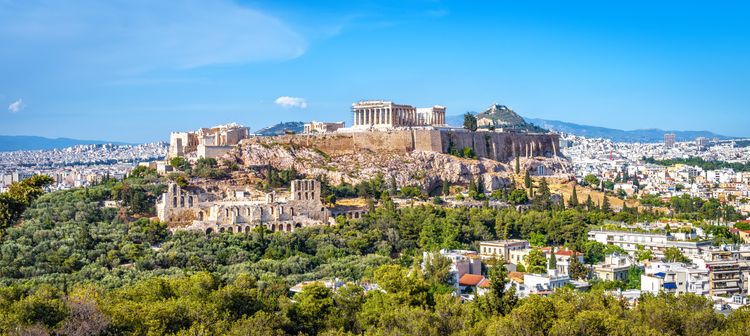
The Acropolis of Athens
- © Viacheslav Lopatin / ShutterstockAthens, the capital, is the logical gateway to Greece. Its ancient sites, foremost among them the Acropolis and its Parthenon, are known the world over. It's also a vibrant city, always lively and bustling, where you can enjoy browsing through museums or lounging late at night on a terrace in the mild Attic nights.
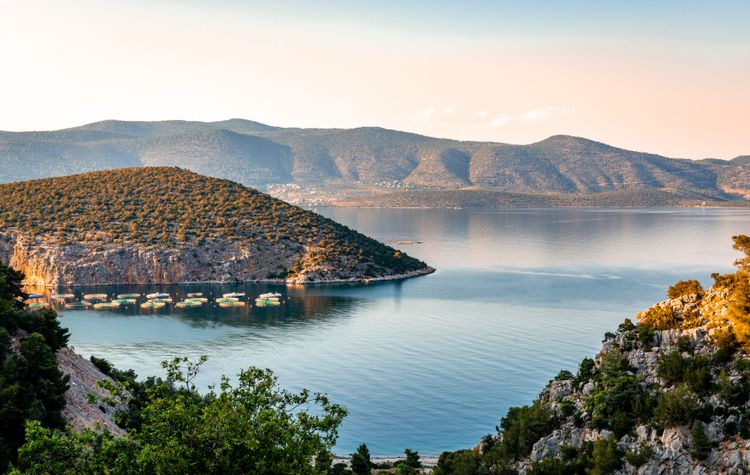
Shores of the Argolid, in the Peloponnese
- © Apostolis Giontzis / ShutterstockThe imposing Peloponnese is a reflection of mainland Greece as a whole: touristy in places, with famous archaeological sites such as Olympia, Mycenae and Epidaurus, and major seaside resorts such as Kalamata, it is also home to wilderness areas that are difficult to access, made up of gorges and mountains sparsely populated by villages and shepherds.
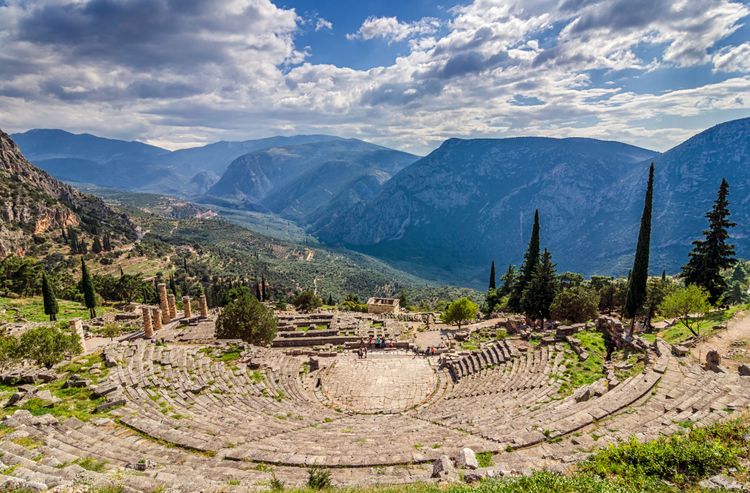
The ancient theater of Delphi
- © isidoros andronos / ShutterstockThis dichotomy can be found just about everywhere on the Greek mainland: world-famous sites such as Delphi and the monasteries of Meteora are matched by little-visited areas off the beaten track, such as the superb Pelion peninsula and the rugged terrain of Epirus. Not far from Thessaloniki, a cosmopolitan, cultural and festive city, stands Mount Athos, the most sacred site of Christian Orthodoxy, where tradition dictates that women and female animals are still forbidden!
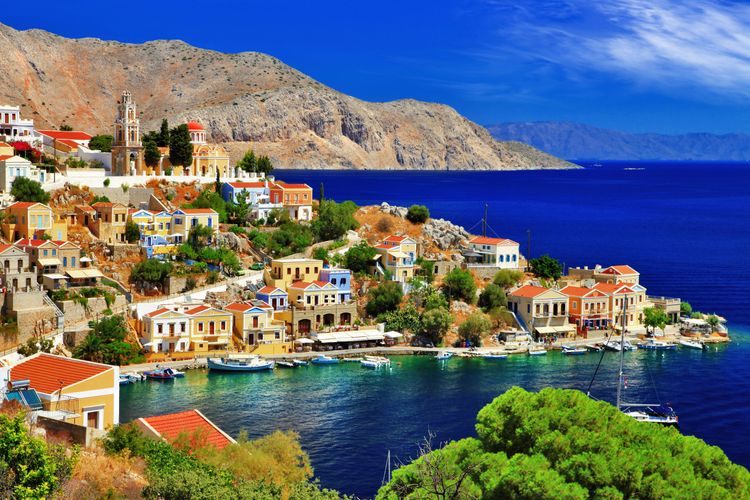
Symi in the Dodecanese
- © leoks / ShutterstockBut it's impossible to talk about Greece's diversity without mentioning its countless islands. They are divided into archipelagos, each of which carefully cultivates its own specific characteristics.
Along the Turkish coast, the Dodecanese is a melting pot of cultural and historical influences, to be discovered on the large island of Rhodes, as well as in Kos, Patmos and Symi. A different style can be found in the Ionian Islands, where the Venetian touch has left its mark on beautiful Corfu, for example.
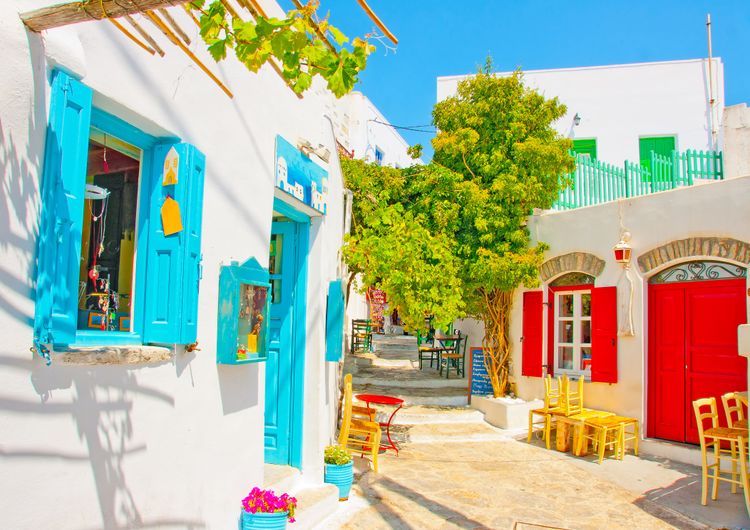
Chora in Amorgos, a typical Cycladic village
- © imagIN.gr photography / ShutterstockA central archipelago that is oh-so-popular, the Cyclades- including Santorini, Mykonos and Naxos- are the stuff of Greek island fantasies, with their dazzling white villages, tiny chapels and heavenly beaches.
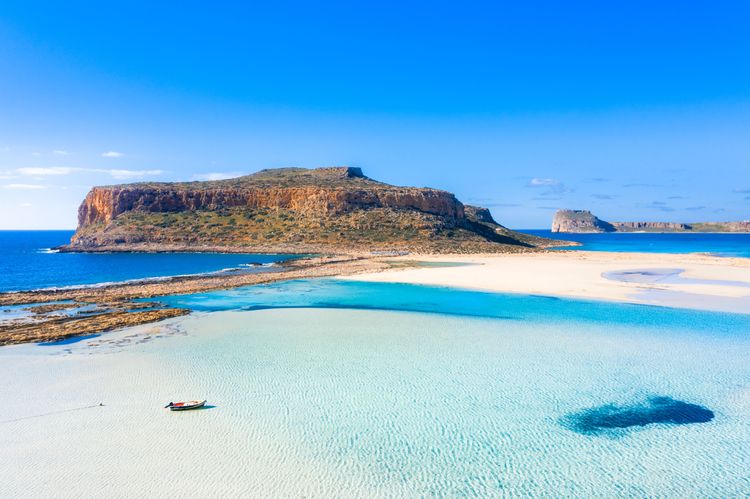
Balos, en Crète
- © Georgios Tsichlis / ShutterstockThen there are the chic and sought-after Argo-Saronic islands (Hydra, Spetses), the imposing North Aegean islands (Chios, Lesbos...) and the discreet Sporades... There are hundreds of islands in Greece. Not forgetting, of course, the largest of them all, and undoubtedly the most bewitching: Crete, whose unique atmosphere and magnificent landscapes make it a destination in its own right.
As you will have realised, it's not just a single trip that's needed to discover Greece and its different worlds, to understand its cultural diversity and historical depth, but multiple return trips to Greek lands. Until you find your favourite corner, an endearing region, an island full of charm, to return to again and again, and join the great community of unconditional fans of Greece!

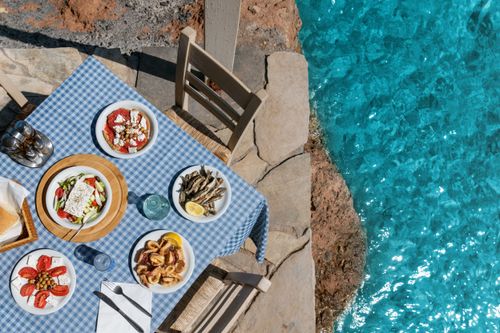
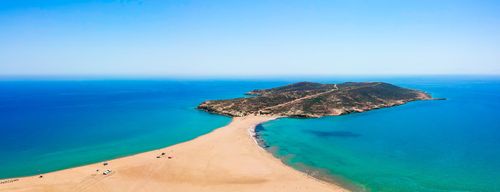
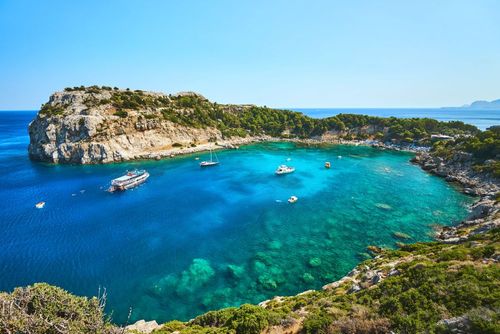
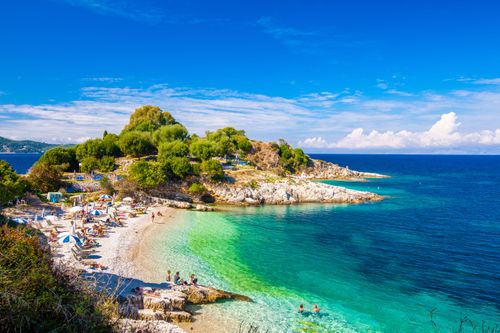
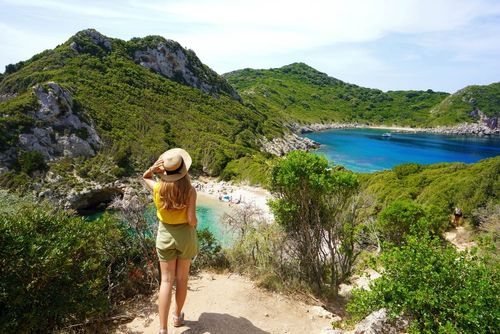
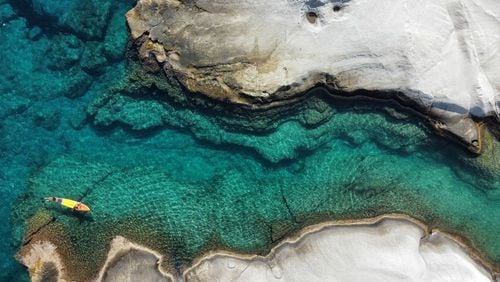



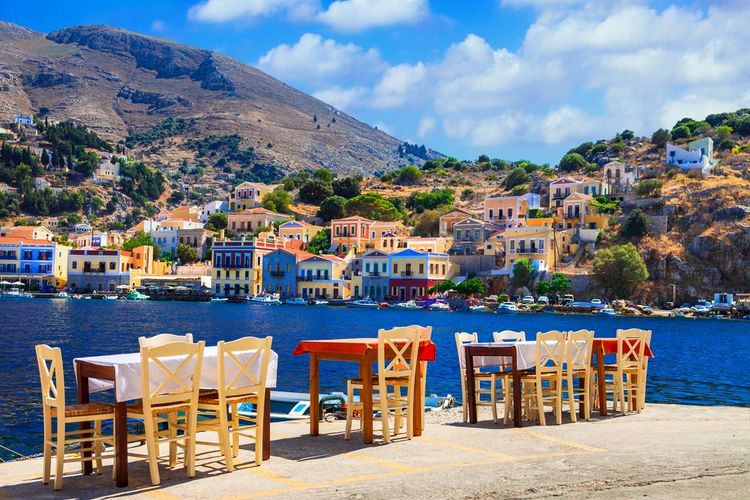 1
1
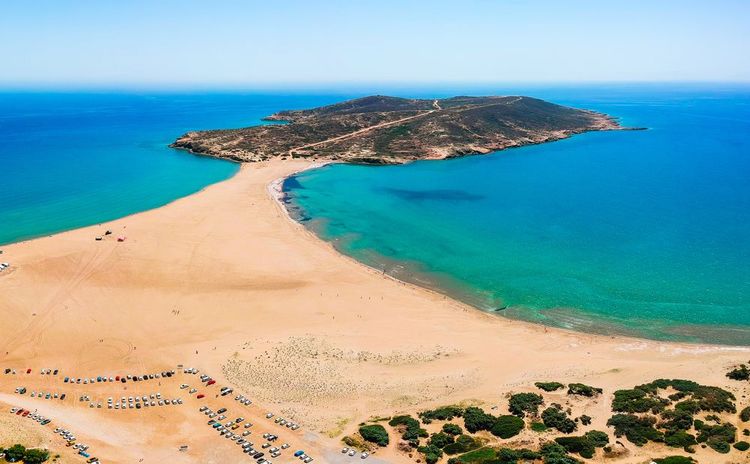 2
2
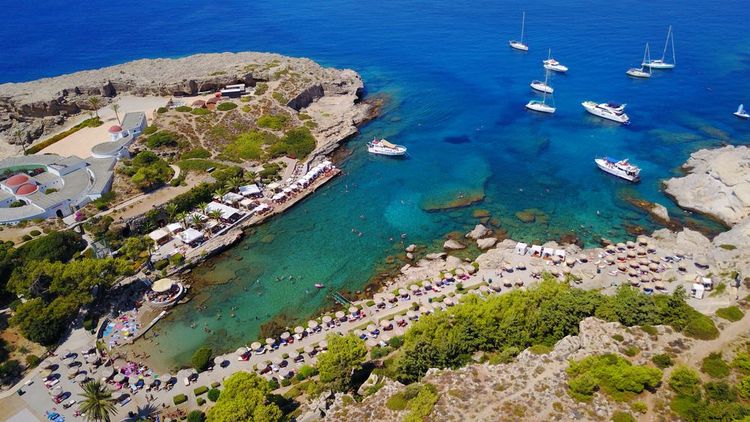 3
3
 4
4
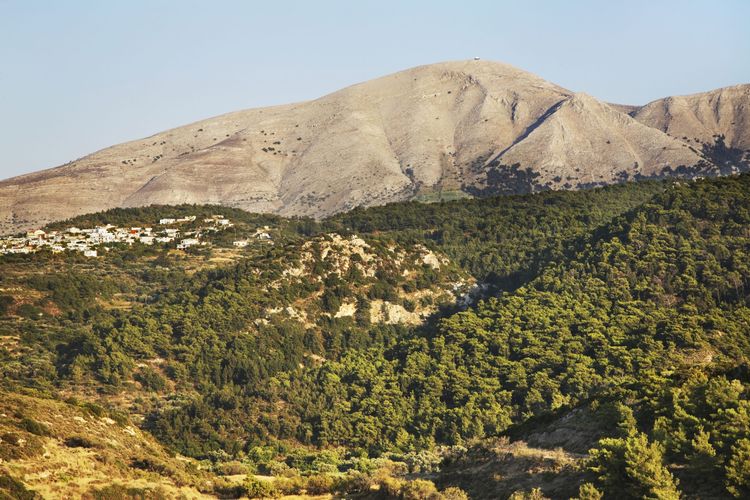 5
5
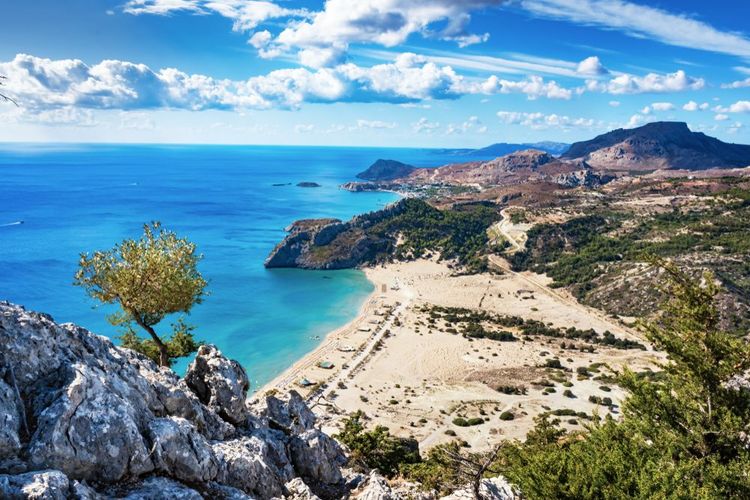 6
6
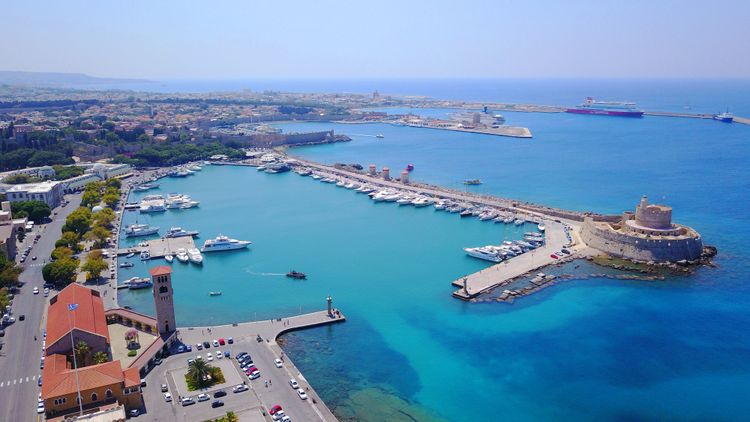 7
7
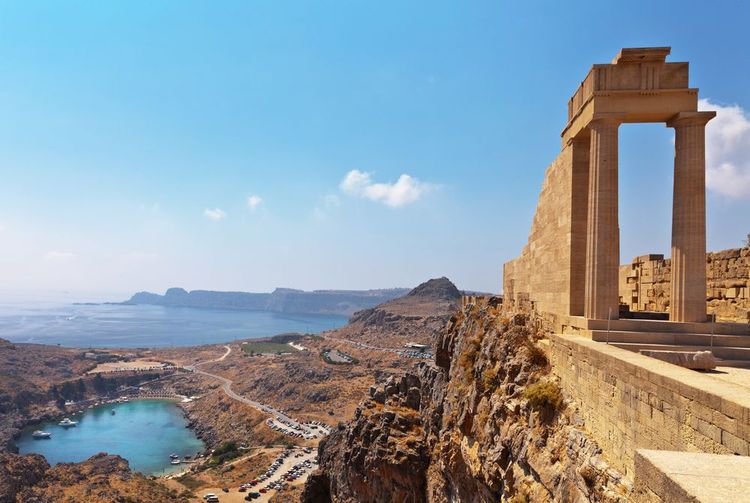 8
8
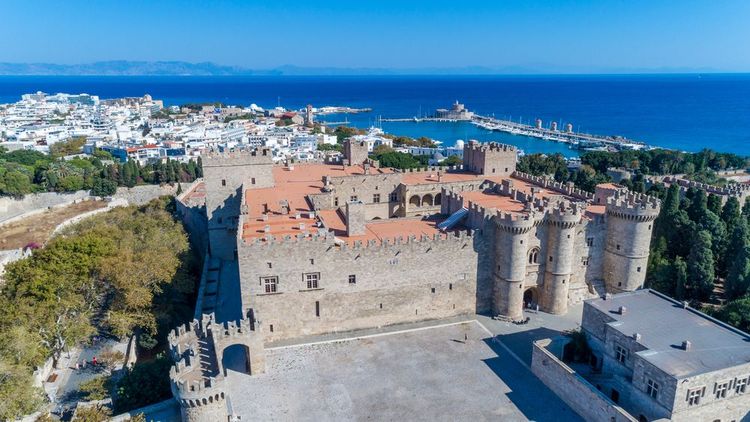 9
9
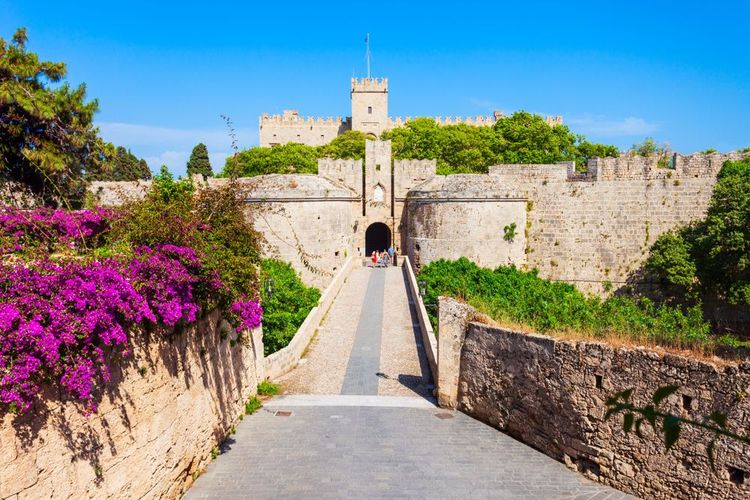 10
10
In season, between April and October, there are many direct and often low-cost flights between France and Greece, departing from Paris, Lyon, Nice, Nantes, Marseille, Bordeaux, etc. with the airlines Aegean, Air France, Volotea, Easyjet and Transavia.
Although Athens is by far the main airport with the most flights, there are other non-stop routes to Greece via the capital, via Heraklion and Chania (Crete), Santorini and Mykonos (Cyclades), Rhodes and Kos (Peloponnese), Corfu (Ionian Islands) and Thessaloniki (northern Greece).
Accommodation in Greece is well developed. In major cities like Athens, you'll find everything from youth hostels to 5-star hotels, not to mention a large number of rented flats. On the islands and in the villages, you can always find small rooms for rent in the homes of friendly, inexpensive locals, as well as holiday rentals and a few hotels of varying standards.
Make sure you book well in advance in summer, as Greece is always full!
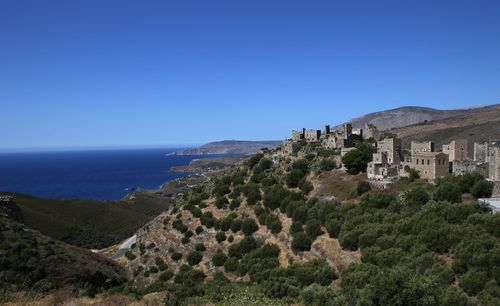
Spring (mid-April to mid-June) is an ideal time to discover Greece: the climate is pleasant and the number of visitors is reasonable, even on the most touristy islands. The same applies to the off-season, from mid-September to October, when the sea is warmer but the days are shorter. Summer is the high season, when the weather is hot every day and the beaches are crowded, especially on the islands (but less so in Athens). The atmosphere is at its best. August represents a tourist peak, as Greeks take their holidays, and in winter the big Greek cities continue to live, while the countryside and islands doze off until spring.
None, apart from remembering to bring your identity card or passport: Greece is a European Union country and part of the Schengen area.
Thanks to direct flights, it's perfectly possible to go to Greece for a week, or even for an extended weekend of visits to Athens. If you plan to combine Athens and several islands, it's best to extend your stay by 10 days to 2 weeks. The country, with its countless islands, is a very varied destination where you can easily travel for a month without getting bored.
There's always a 1-hour difference between France and Greece: when it's 12pm in France, it's 1pm in Athens.
Greece combines many attractions, and has a strong tradition of hospitality, the famous philoxenia. You'll always feel welcome, even in the most popular destinations, and the delicious cuisine is a perfect complement.
A great cultural destination thanks to its ancient remains and museums, Greece also enjoys plenty of sunshine from April until late October. The country's various regions and archipelagos are far from homogenous: a trip to Crete, the Cyclades or Epirus will be a different experience every time.
Greek cuisine is renowned, and rightly so: you can feast anywhere in Greece! The dishes are simple, often using local produce. It's worth noting that there's no hesitation in sharing starters in the form of mezzes, as well as all the dishes served at the table, Greek-style.
The menu specialities vary from region to region. Starters include Greek salad with feta, tzatziki, aubergine caviar, vine leaves and tarama, while main courses include moussaka, stuffed vegetables, souvlaki (kebabs), lamb chops, grilled fish, squid and octopus. In a really good restaurant, the dessert is on the house, watermelon, honey yoghurt or halva.
Greek wines are gaining in reputation, and you can never go without one of the house whites, served in jugs and by the kilo! Ouzo, strong and aniseed-flavoured, goes very well with seafood and small fried dishes.
There are countless souvenirs to bring back from Greece, especially in the most touristy destinations such as Athens or Santorini (t-shirts, bags, sandals, pottery, jewellery, magnets, etc, etc...). Typical crafts include komboloi, the little rosaries that the elders handle all day long.
Local products are the most interesting to bring back: olive oil of course, but also Greek wine, ouzo, Greek coffee, aromatic herbs, etc....
In general, hiring a car, or even a scooter on the smaller islands, is the most practical way of getting around Greece. However, an excellent bus network (KTEL) serves the whole country and the islands well. Each locality has its own network. Trains are an option, mainly on the main Athens-Thessaloniki line.
Many connections are made by boat, particularly to the islands: there is generally a choice between the more expensive fast boats and the slower, cheaper ferries. Alternatively, there are many domestic flights to mainland and island Greece.
Greece is a very safe country. In Athens, you'll need to be wary of pickpockets, around tourist sites and in the metro.
Greece is a country where you always know how to take your time: siga-siga ("gently-slowly") as the Greeks like to say. Take a cue from them, and never be in too much of a hurry.
explore Try out our comparators
It is Easy to travel
